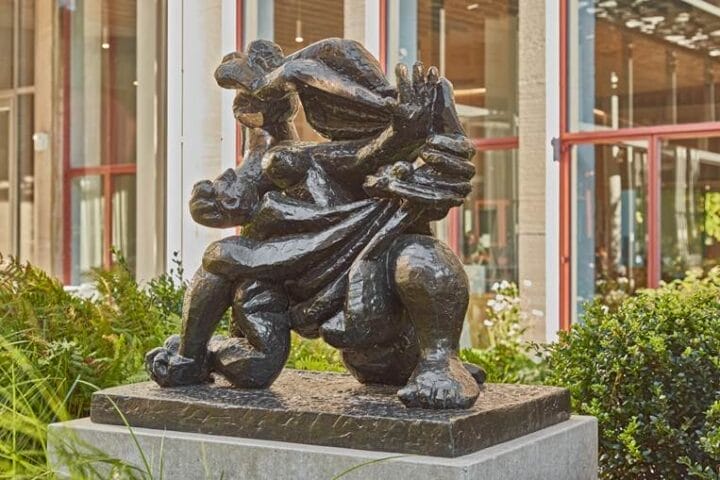Georges Bizet has been revered as one of the world’s most influential composers of all time.
His works have had a lasting impact on the music world, with some of his compositions, such as “Carmen,” remaining beloved classics to this day. Bizet’s works have a unique and timeless quality to them that make them stand out from other composers.
This article will explore the life and works of Georges Bizet and examine why his music has stood the test of time. We will look at some defining features of his works and discuss how he combined elements from different musical traditions to create music that continues to inspire new generations.
We will also explore how Bizet’s musical genius influenced other composers and how it has been utilized in film and theater productions, making him an iconic figure in classical music.
Introduction to Georges Bizet’s Life and Music
The music of Georges Bizet lives on, even though Bizet himself sadly lived only to the age of 37. Bizet was born in Paris in 1838 and showed talent in music from a young age. His family supported his musical aspirations, and at age 17, he was admitted to the Paris Conservatoire.
In 1857, Bizet won the prestigious Prix de Rome, allowing him to pursue music further at the Villa Medici in Rome. During this two-year tenure he wrote several vocal works and orchestral pieces. Upon returning to Paris, Bizet wrote music for a variety of purposes: religious, dramatic and comic operas, cantatas, keyboard pieces and songs.
Bizet’s most well-known work is the opera Carmen (1875). The audience reaction upon its premiere is remembered for being tumultuous due to its revolutionary structure and themes at odds with traditional views of love and society. However, it went on to become one of the most popular operas ever composed due to its infectious music, catchy melodies, characteristic instrumentation and drama-filled plot.
The Success of Bizet’s Operas
Georges Bizet’s genius for music composition was best realized in the form of operas, many of which are still performed and loved today. One of his most celebrated works is the opera “Carmen,” which had its debut in 1875. It tells the story of a fiery gypsy girl, her seduction of a naive soldier, and their dramatic end.
The success of “Carmen” was unprecedented—it ran for 48 performances upon its initial release and has since gone on to be one of the most recorded operas in history. The score is among the most recognizable in all of music thanks to popular tunes like the Habanera, Toreador Song, and Intermezzo. “Carmen” has been adapted into ballets, films and even children’s books, making it an enduring work that reaches far beyond the stage.
Bizet also wrote other popular operas such as “The Pearl Fishers” and “The Doctor Miracle,” both beloved for their poetic melodies and vivid storytelling. To this day, any lover of classical music can find joy in listening to Bizet’s performances or attending a live opera production put on by one of his works.
His Major Orchestral and Choral Works
Georges Bizet’s orchestral works were some of the most popular of his career.
Carmen Suite
His most renowned work is the Carmen Suite, a five-movement selection adapted from highlights of his opera Carmen. This suite became one of the most well-known collections of orchestral works in the world. Its popularity has remained strong for over a century and continues to be performed in concert halls around the world.
Symphony in C
Bizet also composed a symphony in C major, which premiered shortly after his death in 1875 at a memorial concert for him in Paris. The symphony is one of the only larger-scale pieces he left behind and is an example of his masterful command over classical music form and structure. The symphony is known for its subtle yet powerful emotions, as well as its dramatic grandeur.
Other Orchestral and Choral Works
Other important orchestral works by Bizet include Roma, his incidental music to Alphonse Daudet’s play L’Arlesienne, which contains several famous tunes; Sinfonie en ut majeur (Symphony No. 1); Jeux d’Enfants; and two brilliant entractes originally composed for performances of Prosper Merimee’s Toreador at the Paris Opera Comique in 1872. Bizet also wrote several choral pieces throughout his life, such as Te Deum, Marche funebre de Tristan et Isolt (Funeral March from Tristan und Isolde), and Ave Maria Stella (Hail Star of Mary).
Notable Chamber and Solo Instrumental Compositions by Bizet
Georges Bizet’s work was so varied and vivified, that it is no wonder he has been remembered as one of the greatest composers of all time. In addition to his famous operas and stage works, Bizet was also a prolific composer of chamber and solo instrumental compositions.
Some of Bizet’s best loved chamber works include:
- The String Quartet in G major (1862)
- The Symphony in C major (1855)
- The Jeux d’Enfants (Children’s Games) for piano four hands (1871)
- The Petite suite for piano (1871)
- The Prélude for violin and piano (1844/45)
Solo instrumental compositions have also made their mark on many fans, showcasing Bizet’s boundless creativity. Notable compositions include:
- Several sets of individual pieces for piano such as the Prélude et Fugue and the Variations chromatiques de concert
- An Impromptu for organ
- A Romanze for cello and piano
- A Chant élégiaque for horn and piano
– Numerous songs with accompaniment by guitar, violin or both
His Early Musical Training and Composing Influences
At the Paris Conservatoire of Music, Georges Bizet received extensive training in both the classical and romantic eras of music. His teachers included Pierre Lenepveu, Antoine Elwart and François Bazin. His love for opera and operetta was cultivated early on and flourished under the guidance of François Bazin. Bazin provided Bizet with a strong foundation in theory and encouraged him to explore his passion for composition.
Bizet was heavily influenced by several composers that were popular during his era, such as Frédéric Chopin, Giacomo Meyerbeer, Pietro Generali, Gioachino Rossini, and Vincenzo Bellini. He admired their works for their ability to capture the emotion of a moment in time – something Bizet would later master in his own compositions. He also studied scores by Johann Sebastian Bach, Ludwig van Beethoven, Franz Schubert, Hector Berlioz and Modest Mussorgsky.
His early compositions were recognized for their precocious talent; in 1855 he won first prize in the Prix de Rome with his cantata Clovis et Clotilde – which many consider to be a precursor to Carmen. While studying at the Paris Conservatoire he composed over 20 pieces of music including symphonies, cantatas, chamber works and solo piano pieces – all evidence of a prodigy whose talent far exceeded most of those around him.
The Continuing Legacy of Georges Bizet’s Music
Georges Bizet’s music lives on today, long after his death in 1875. His compositions have been performed by orchestras around the world, and his operas remain beloved by audiences. The reasons for this endurance are clear: Bizet’s music is sophisticated and beautiful, as well as emotionally powerful.
Style
Bizet’s style is marked by a combination of romanticism and modernism. He composed pieces that were simultaneously classical and daringly innovative, giving them an enduring appeal. Through elements such as unexpected dissonance and far-reaching crescendos, he created musical textures that were dramatic and vivid.
Range of Expression
The breadth of Bizet’s expression was remarkable; he could convey everything from the joys of love in Carmen to the despair of exile in The Pearl Fishers. His lyricism was profound, allowing him to depict characters with great psychological depth.
Popularity
The most beloved works remain some of the most popular worldwide today: Carmen is one of the world’s most performed operas; the Habanera from it remains one of the most recognized musical passages ever written. Similarly, The Pearl Fishers Duet has become a staple at weddings and other special occasions.
Thanks to Georges Bizet, classics like these will continue to inspire listeners for many generations to come
Undoubtedly, Georges Bizet is one of the greatest musical geniuses of all time. His works have continued to be performed around the world and have stirred emotions in listeners for centuries. From Carmen to L’Arlésienne to his unfinished opera, The Pearl of Malabar, Bizet composed music that has stood the test of time and continues to influence modern-day composers.
His music has become a cornerstone of Western classical music and will remain in our hearts forever. As he himself said, “Music expresses that which cannot be put into words and that which cannot remain silent.” Indeed, Bizet has left a legacy that speaks for itself.









